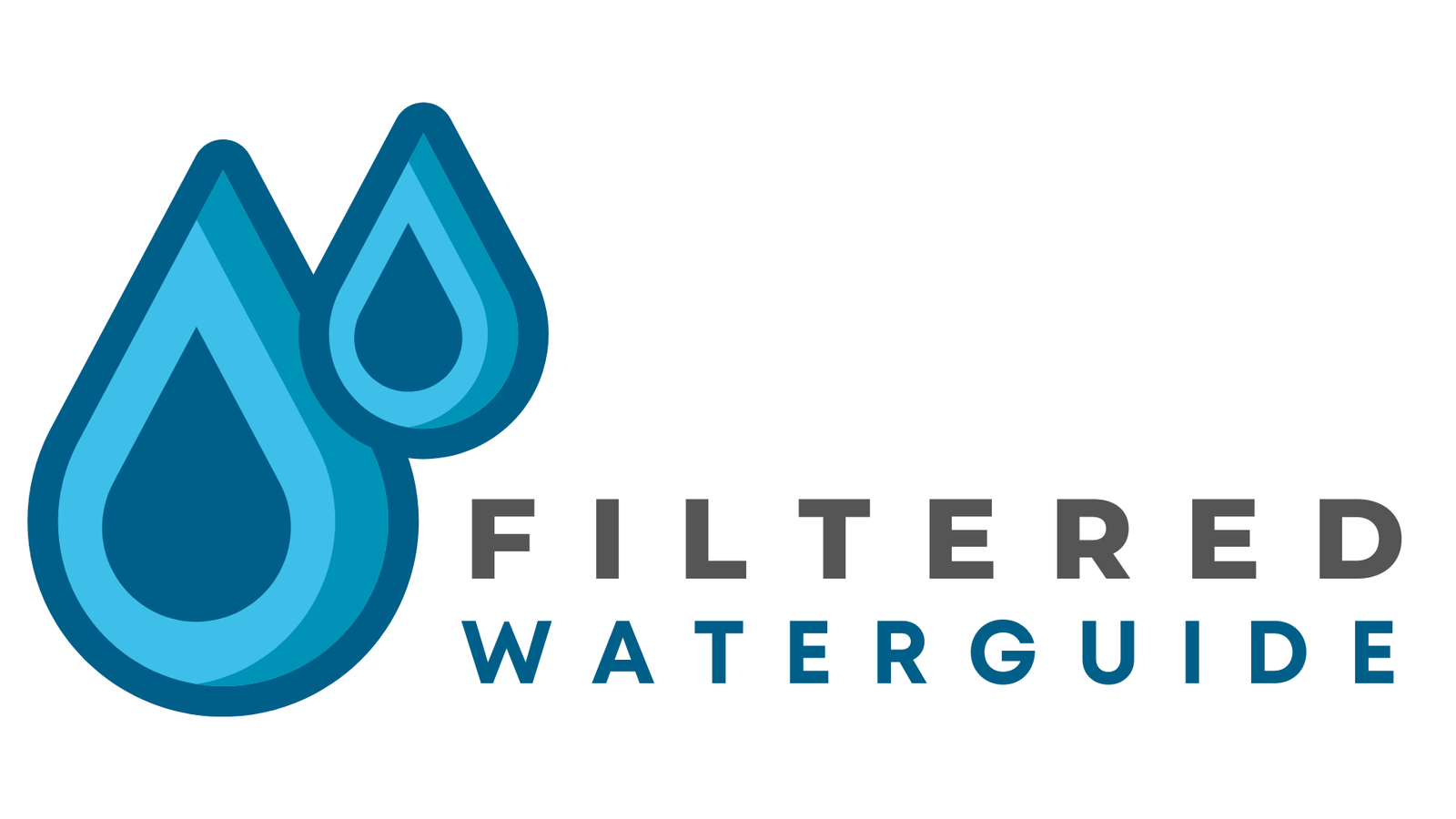Filteredwaterguide.com is supported by readers. If you purchase through referral links on our site, we make a commission at no extra cost to you. Learn more.
Do I Need a Whole House Water Filter?
One of the most popular means of purifying water in a home is for a homeowner to install a whole-house water filtration system. These water filters are placed on an incoming plumbing line shortly after it comes into a home and filters 100% of the water coming into it.
That’s the reason why they are also called point of entry (POE) or whole-home water filtration systems. If you purchase one of these water filtration setups, they will provide you with a very effective means of removing impurities from your household water.
Not only will they make your water healthier to drink, but the impurities that they remove may also accomplish such things as making your bathroom fixtures easier to clean and helping you to avoid getting ugly stains on white clothes when doing laundry.
Are they definitely needed in every single home? The answer to that is no. That’s why I am about to go over with you how to tell if you can benefit by having a whole house water filtration system.
Helpful Resource: How to Choose a Whole House Filter
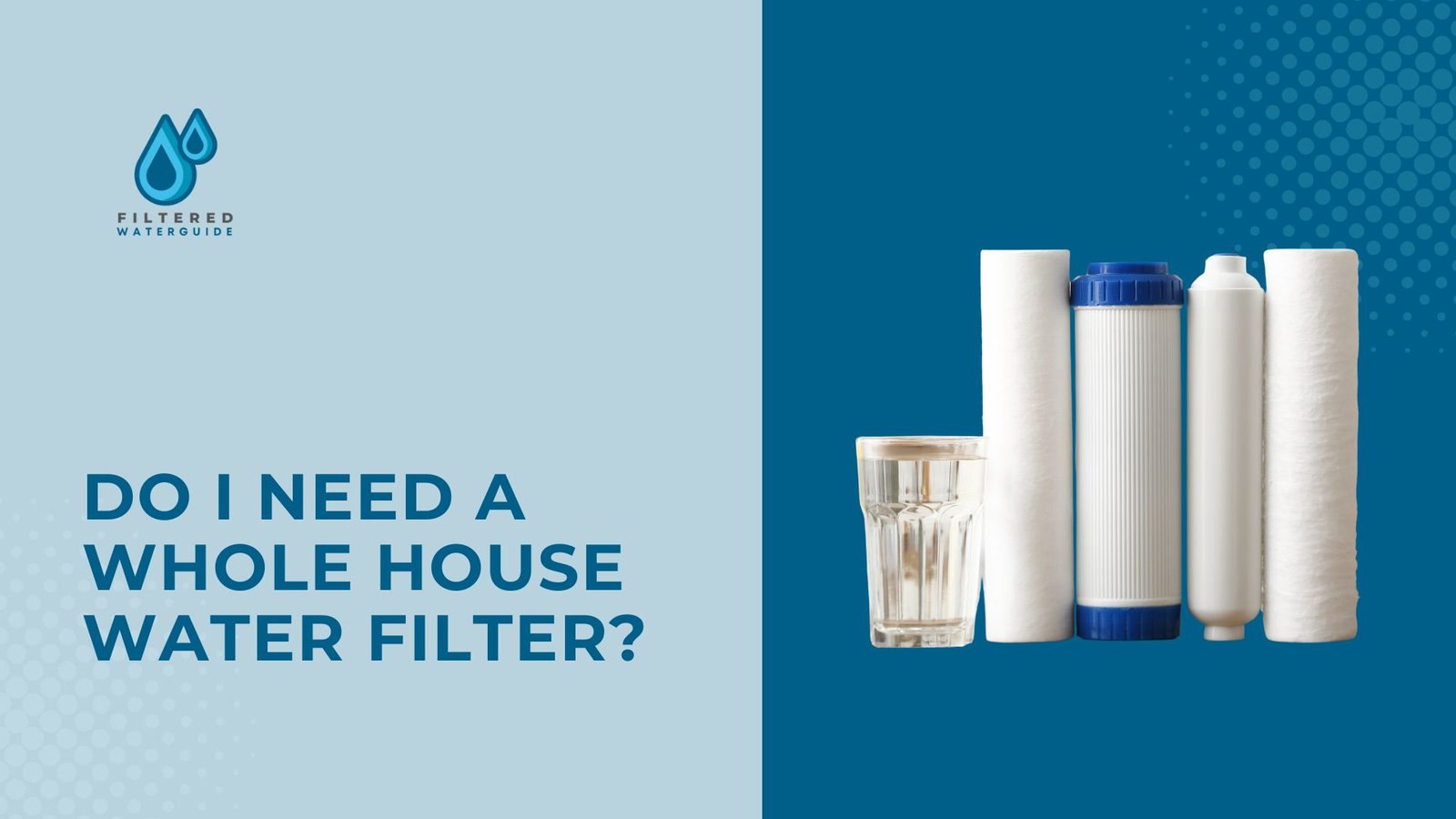
What’s In Your Water?
If you have no or only a small number of contaminants in your home’s water, it would not make much sense for you to go to the expense of installing a point of entry water filtration system.
I will tell you that even the clearest-looking tap water often contains at least some harmful impurities. Much of this is due to the contamination of water sources that result from industrial and environmental pollution.
So, what’s the best way to tell how pure your drinking water is? It’s to have your home’s water thoroughly tested. This is not something that you want to attempt to do on your own, so the best way to go about doing it is to have your household water professionally lab tested.
I have had good luck recommending a company called ‘Tap Score’ for doing this. That makes home water testing as easy as ordering a test kit online, filling up the provided water sample containers when the kit arrives, and then sending the results to their lab to be analyzed.
As with all lab water testing, you will get results that test for a wide range of common water contaminants, and the findings of your water analysis will be extremely accurate.
Determining If You Need a Whole House Water Filter
Once you have had your home’s water professionally tested by an accredited lab, then you can determine if it’s practical or necessary for you to own a POE water filtration system.
Chances are, you will find impurities in your water that are worth removing either because they cause health concerns or because they can become the source of other nuisance problems or expenses around your home.
I will go on record as saying that almost every single home across America will benefit at least a little by having a quality whole home water filter installed on its incoming water supply line.
Types Of Whole House Water Filter
There are two basic types of POE water filters. They are as follows:
Heavy Duty Filtration Systems
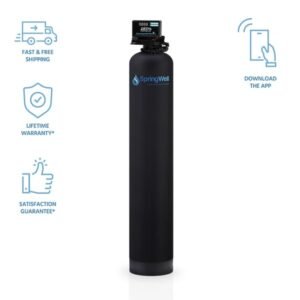
These are the most impactful types of whole house filtration systems. They consist of sturdy tanks that can be as high as 50-inches tall and as wide as 1-foot in diameter.
Inside of these tanks will be several different types of filter media that will remove or reduce a large number of concerning water impurities such as chlorine, heavy metals, pesticides, and VOCs. They also require virtually no maintenance once they have been installed.
The big drawback with this type of whole house filtration system is that they have a high initial cost.
Standard Capacity Water Cartridges
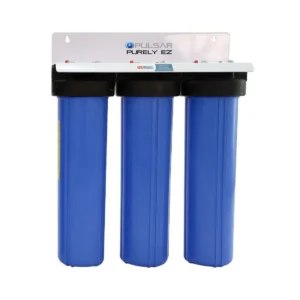
This is a less costly way to remove impurities from all of the water that comes into your home. It’s done by placing different types of filters in a series with each other. Most whole-house filters that use this type of whole house filter will have several filtration stages.
Filtration stages in these will usually consist of at least a sediment prefilter, a Granular Activated Carbon filter (GAC), and a small pore-sized (5-micron) coconut shell carbon filter (CTO).
This makes these whole house water filter types also very impactful when it comes to removing water contaminants such as chlorine, heavy metals, pesticides, and VOCs.
These also can be obtained by purchasing a complete system online or from a retail store or by purchasing several different filter cartridges individually and then doing a DIY installation.
The biggest drawback to using this type of point of entry water filtration system is that there is some periodic maintenance and cleaning involved with them which also results in after installation expenses. This mostly involves purchasing and replacing filter elements.
How to Determine Which Type of Whole House Water Filter is Right for You?
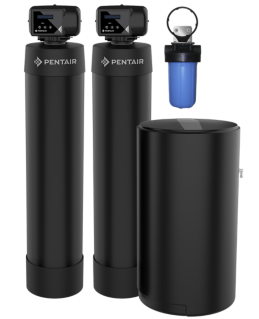
To best determine which one of these types of point of entry water filtration systems is right for you, I strongly urge you to check out our best whole house filter review guide.
You can also add UV light disinfection or a quality water softener as add-ons for either of these types of whole home filtration systems for even better water quality.
My Thoughts on Whether to Own a Whole House Water Filter or Not?
Once you test your home’s water, it should become immediately clear whether or not you can benefit from having a point of entry water filter. Most likely you can.
Then you just need to use the information above and do the necessary research to find one that best targets the largest number of contaminants in your tap water that concern you the most.
You will also want to consider using these impactful whole home water filtration solutions in combination with a quality point of use water filter such as a reverse osmosis system, under-sink, or countertop water filter.
If done right, using these two types of water filters together will significantly increase your drinking water quality.
